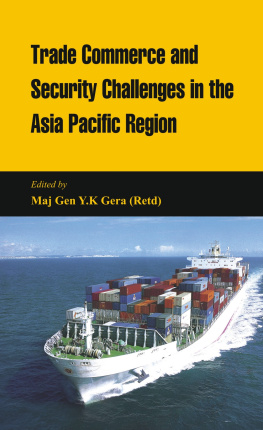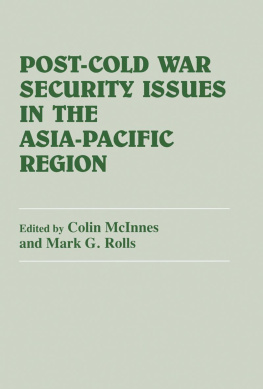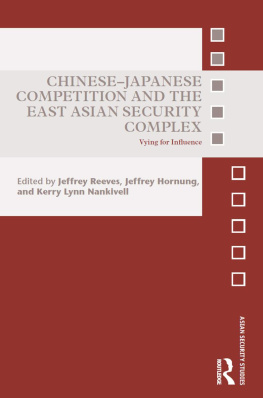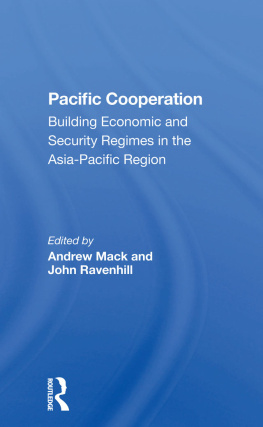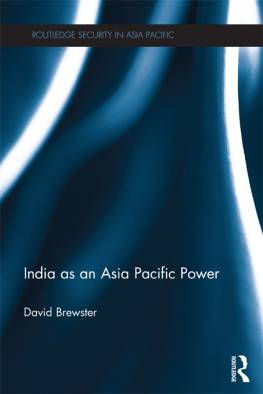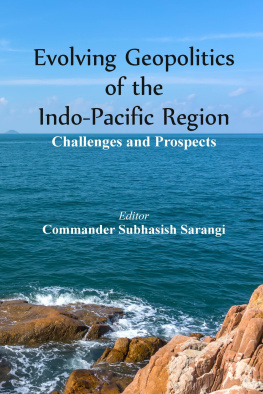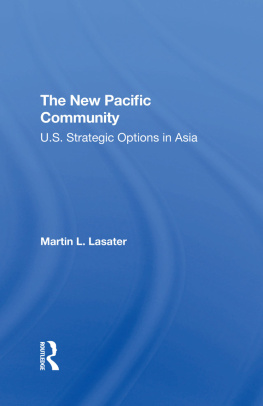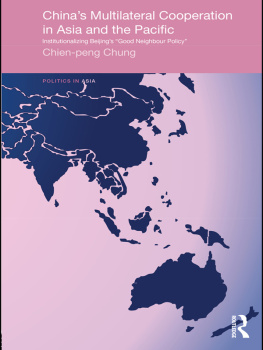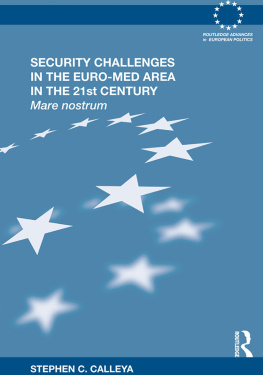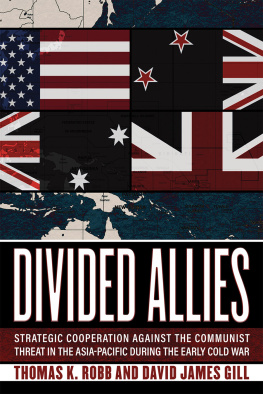Published by
Vij Books India Pvt Ltd
(Publishers, Distributors & Importers)
2/19, Ansari Road
Delhi 110 002
Phones: 91-11-43596460, 91-11-47340674
Fax: 91-11-47340674
e-mail:
Copyright 2013, United Service Institution of India, New Delhi
ISBN: 978-93-82652-08-3
Price in India: Rs 795/-
All rights reserved.
No part of this book may be reproduced, stored in a retrieval system, transmitted or utilized in any form or by any means, electronic, mechanical, photocopying, recording or otherwise, without the prior permission of the copyright owner. Application for such permission should be addressed to the publisher.
The views expressed in the book are of authors/contributors and not necessarily those of the USI or publishers.
Printed in India
at Narula Printers
CONCEPT NOTE
Trade, Commerce and Security Challenges in the Asia-Pacific
Region
The Asia-Pacific-Region is a dynamic but complex area where much of the history of the 21st Century will be scripted. Although the strategic and economic importance of the Region continues to grow, challenges of reconciling national interests with regional and global interests continue. Security architectures during the Cold War were based primarily on military alliances. However, the need today is to base these architectures on shared values, interests and challenges. We need to not only define but believe in these universal values, regional and international interests and global challenges. We need to do a lot more here.
Rapid increase in international trade and financial flows coupled with fiercely competitive multi-national companies, supported by global supply chain networks, offer tremendous opportunities for trade and investment. The Region represents 55 per cent of global GDP and 44 per cent of world trade and is home to some of the largest economies as also to the worlds largest militaries. Security plays a vital role in keeping the economy growing by keeping the transportation networks secure as also by protecting the economic and financial infrastructure from attack and undertaking action to ensure speedy recovery of commerce following an attack or natural disaster.
Despite greater economic integration and strategic dialogue, there persists mistrust and brinkmanship which could jeopardize peace, stability and economic growth in the Region. Hence there is a need to look at linkages between trade and commerce, energy, environment, maritime issues and their broader linkages to geopolitics, strategy and security.
Trade and Commerce in the Asia-Pacific Region and its Impact
on Security (Session1)
This session will primarily examine economic issues as they are the fundamental drivers of all other issues. We need to examine the linkages between trade and security. Do trade and economic linkages bring about greater stability or do they curtail the options of comparatively smaller economies?
While the evolution of Asias Trade Architecture has had an impact on regional and global economy, there is a need to analyse how the Region reacted to economic challenges so as to draw lessons for the future. To understand the strength of the economic institutions, we need to analyse whether the responses were driven by these institutions or were led by powerful nations deciding amongst themselves in the background? Are any remedial measures required?
A priority for the governments in this region is to secure efficient trade, most of which is transported over the seas. What should be done to enhance the security of commercial shipping and sea borne trade as well as to promote regional security and economic development?
The world is looking upto the region to provide an impetus to the world economy. Will the Asia-Pacific be a growth leader? What will be the effect of an economic down turn in the Asia-Pacific-Region on the global stage? And last but not the least; will narrow, nationalistic trade and economic considerations be the drivers of strategic instability?
In the regional context, we have bi-lateral as well as multi-lateral socio-politico-economic arrangements, dialogues and partnerships. How can we co-opt multi-lateral agendas into the bi-lateral sphere? Can we construct a multi-lateral framework which can channel some of its positive aspects into the bi-lateral framework and vice-versa?
Energy, Environmental and Maritime Security (Session2)
Energy security affects economic performance and political stability. While many sources of energy exist, oil continues to be at the heart of the regions energy challenges. What are the prospects for regional cooperation in the energy security domain? Suggest policy options which will contribute to energy security.
Alternate Energy will it be a game changer? What will be its geopolitical impact? Also, how will it impact environmental considerations and economic and defence needs?
Some of the environmental issues that need to be discussed are:-
(a) Security implications of climate change including the aspects of food security.
(b) Trans-national rivers and sustainable management of water resources.
(c) Sustainable use of natural resources and the challenges of green growth.
(d) Trans-boundary air pollution.
(e) Armed forces and environmental pollution.
Maritime security is an indispensable and fundamental condition for the welfare and economic security of the global community. The challenges arise not only from piracy, terrorism and environmental issues but also from conflicting national interests and the urge for politico-military dominance. Varying interpretations of freedom of navigation adds to the complexity of the security challenge. Protecting maritime freedom will require finding the right balance between the rights of nations and the freedom of the world community. All nations will have to abide by universally accepted laws and principles. Suggest ways and means to evolve an open, transparent and inclusive maritime security structure that will ensure the protection and preservation of maritime freedom. Also suggest measures to facilitate maritime security cooperation.
While traditional threats have enlarged to include non-traditional threats like climate change, pandemics, non-state actors, cyber and economic crimes etc; we continue to look at these primarily through the military-diplomatic lens. Is there a need today for greater inter-action between the politico-military-diplomatic players and scientists and experts from the non-traditional security fields? Will this necessitate new security architecture?
Future Security Challenges and Opportunities (Session3)
Challenge of reconciling national interests with regional and global interests persists leading to mistrust and brinkmanship. What is the regional security outlook for the period 2013-2015?
Has the rise of emerging powers added to a sense of insecurity in others? How does this impact evolving fair and sustainable security architecture? What role will deterrence play in the evolving security architecture? Economic growth has underpinned military modernization and military capability growth in most of the countries in the Region. Will this lead to a balance of power and greater stability or will this lead to tensions and instability? The Indian Ocean and the Pacific Ocean are now being increasingly viewed as a single strategic system. What are the implications? What are the challenges in the Space and Cyber domain? Will the responses continue to be at the national level or can a regional / global response be worked out?

